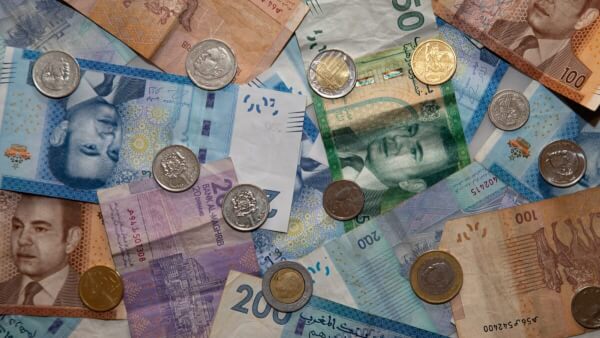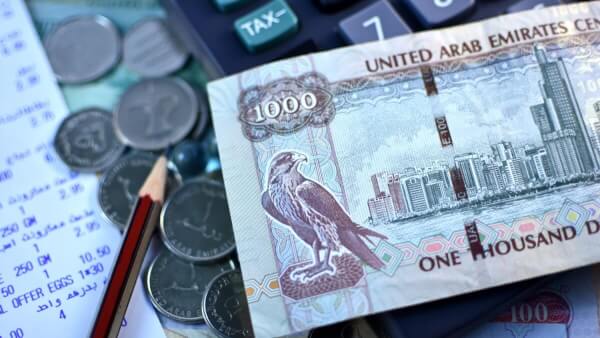Starling Bank limits: transfers, withdrawal, spending
Read our guide to Starling Bank limits on UK and international transfers, ATM withdrawals and card spending for personal customers.

Luxembourg is a small, but perfectly positioned country, making it a strategic location for organisations, and a very popular new home for expats. You can enjoy the outdoor lifestyle, even in the city, and find a new country to explore within half an hour drive in any direction.
But if there's one common refrain about life in Luxembourg, it's the cost. The standard of living is extremely high - with prices to match.
If you're moving to Luxembourg, then getting a local bank account (to avoid excessive fees for currency conversion and international ATM use), should be a priority. Here's how.
Both residents and non-residents are entitled to open a bank account in Luxembourg. The process is usually fairly simple as long as you provide the relevant documents.
You're likely to be asked for the following:
If you want to have a credit card linked to your Luxembourg account you’ll need to provide further documentation to prove your ability to pay the bills. Pay slips are usually accepted as proof of income, although bank policies will vary. Some banks prefer to delay offering credit to new customers, so being able to establish your financial solvency might speed things up a little.
You can open a bank account online, meaning you can get the process started before you arrive in Luxembourg. You may still need to post documents to the bank, or present them upon arrival in order to collect your bank card.
BNP Paribas, for example, offers the option of opening your account online prior to arriving. ING has the same service, which requires you to fulfil certain residency requirements, and transfer €100 from an account in Luxembourg, France, Belgium or Germany. This is then placed into your account as an opening balance, or returned to you if for some reason your account application is rejected.
There are many agencies offering to help expats set up bank accounts in Luxembourg, but these tend to be aimed at people looking to create confidential banking arrangements outside of their country of residence. If you’re going to live in Luxembourg and use an account for daily life, you shouldn’t need an agency’s help.
You can open an account in Luxembourg as a non-resident. Many people work in Luxembourg but live outside of the country’s border (or vice versa), so banks are used to dealing with non-resident applications. In most cases, you simply need to prove your address for correspondence purposes, with a recent utility bill or rental contract.
Old-world bank accounts only work properly in one country. They hold money only in one currency. And it gets expensive when you try to use them across borders. Wise's new Borderless accounts solve all of this.
Now you can send, receive and organise your money internationally, without crazy fees or even-crazier exchange rates – just a small, fair charge when your money moves between currencies.
Banking is Luxembourg’s largest economic sector - so you will have no difficulty in finding a financial services provider there. However, many of the banks operating in Luxembourg are aimed at administering the wealth of high net worth individuals, and cross-border investment funds.
If you want an everyday account, you can choose any of the large retail banks that operate in the country. Here are a few:
BNP Paribas is the largest bank operating in Luxembourg. They offer bank accounts for everyone - including student accounts and those specifically aimed at cross-border commuters. You can open a web-based account for free, but for more flexible services there’s a small monthly charge.
A Dutch bank, ING, operates in Luxembourg, and has products specialised for day-to-day banking, expat life, students and other specific customer needs. You can get a regular currency account, visa credit or debit card, and use online banking via web or an app.
You might have never thought about opening a bank account with the Post Office, but with Luxembourg’s Post you can do just that. The advantage is that this is the cheapest bank account available in Luxembourg (at least for the first year, when discounts and perks make it completely free to run). A downside is that you only get free cash withdrawals from their own ATMs - which could push up the cost of the account if their ATMs are not so accessible to you. Read the small print before you sign up.
BCEE allows you to open a currency account in any major currency. Accounts attract monthly fixed charges based on the range of services you need to use. The bank has 110 cash machines throughout Luxembourg, and 72 branches - so you're bound to find one near you.
With hundreds of banks operating in Luxembourg, you’ll certainly find an account to suit you. Competition is fierce so shop around if you have the time. If you want to do some more shopping, check out other banking institutions in Luxembourg.
Any staff member in any bank should be able to help you open an account fairly quickly with no need to make an appointment in advance. Simply take along the documents required and you’re good to go.
When you open a new bank account in Luxembourg, make sure you understand the banking fees and charges that apply. The small print might not be fascinating, but it can save you cash in the long run.
Look out for any regular charges levied to keep your account open or use a credit or debit card. A normal BNP Paribas account, for example, with limits on the number of bank transfers you can perform per month, will cost around €2.50 a month. These account handling fees mount up over time.
Other things to look out for include set fees for withdrawing cash from an ATM operated by a different bank. Some banks work in partnership with each other and offer free withdrawals - others will charge you for every transaction.
At some point or another, most expats find they need to move money between accounts which use different currencies. This can be another costly experience - so it pays to find the best deal.
Banks are often an expensive choice for international money transfers. As well as a charge for processing the transaction, the bank’s profit can be rolled into an exchange rate which is poor value for the customer.
Look instead for a platform with low, transparent fees, like Transferwise. With Transferwise you can transfer money between accounts using the real exchange rate. You don't need to worry about an unfair markup on the rates, and there are no hidden fees, just a clear set charge for your transfer.
*Please see terms of use and product availability for your region or visit Wise fees and pricing for the most up to date pricing and fee information.
This publication is provided for general information purposes and does not constitute legal, tax or other professional advice from Wise Payments Limited or its subsidiaries and its affiliates, and it is not intended as a substitute for obtaining advice from a financial advisor or any other professional.
We make no representations, warranties or guarantees, whether expressed or implied, that the content in the publication is accurate, complete or up to date.

Read our guide to Starling Bank limits on UK and international transfers, ATM withdrawals and card spending for personal customers.

Find out how to open a Starling Bank account online in the UK with our comprehensive guide, covering eligibility, requirements and how to get started.

A list of the top 10 banks in Morocco, including CIH Bank, Attijariwafa Bank, Bank of Africa and Al Barid Bank.

A list of the top 10 banks in Dubai, including Emirates NBD, First Abu Dhabi Bank, Mashreq Bank, RAKBANK and HSBC UAE.

Looking to open a new bank account? Read our Halifax Reward current account review and find out everything you need to know.

Read our comprehensive guide to the best USD accounts in the UK, including features, fees and everything else you need to know.